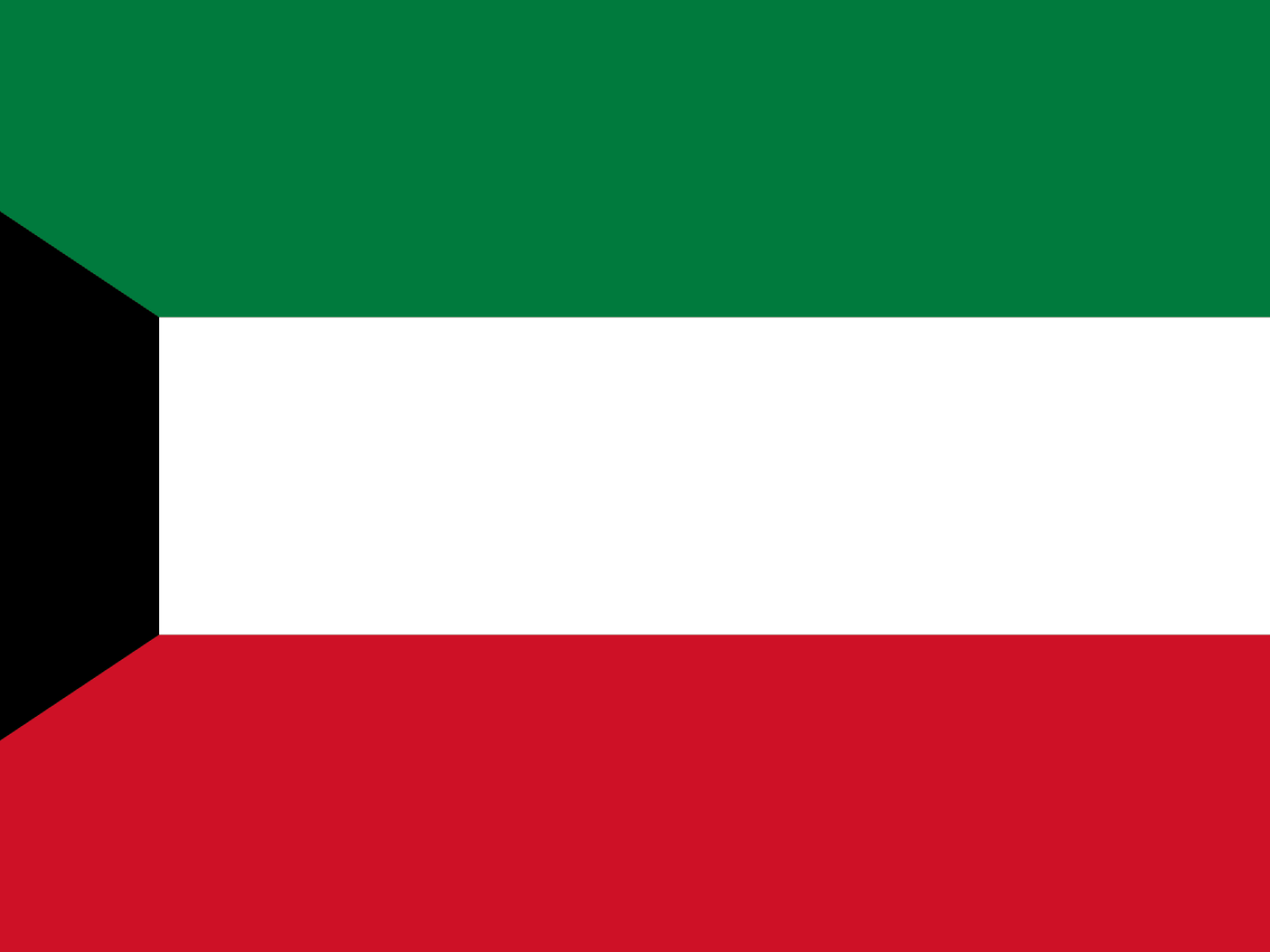Moving to Kuwait
Simply move better with reloqio
✔️ Get offers free of charge – No obligation, no worres.
✔️ Quality-tested partners – Reliable and experienced.
✔️ Selection in your region – Find the perfect offer and save up to 45%.

Overview
Introduction to Kuwait
Kuwait, a small but wealthy country located in the Arabian Gulf, is known for its significant oil reserves, modern infrastructure, and cosmopolitan lifestyle. The capital, Kuwait City, is a bustling metropolis with a mix of traditional culture and modern development. Kuwait offers a high standard of living, excellent healthcare, and a variety of amenities, making it an attractive destination for expatriates. However, the country also faces challenges, including a high cost of living, strict social norms, and a dependence on oil that makes the economy vulnerable to fluctuations in global oil prices.
Why Move to Kuwait
Moving to Kuwait offers the opportunity to experience life in one of the wealthiest countries in the Middle East, with access to modern amenities, high-quality healthcare, and a tax-free salary. Kuwait’s strong economy, driven by the oil sector, attracts professionals from around the world, particularly in industries like finance, engineering, and healthcare. However, expatriates should be prepared for the high cost of living, particularly in terms of housing and education, as well as the country’s conservative social norms, which may require significant adjustment, especially for those coming from more liberal cultures.
Cost of Living in Kuwait
The cost of living in Kuwait is high, particularly in Kuwait City. Housing is one of the biggest expenses for expatriates, with rental prices for apartments and villas being relatively steep. Other costs, such as food, transportation, and utilities, are also higher than in many other countries in the region. Imported goods, especially luxury items, can be very expensive due to high taxes and tariffs. While public services such as healthcare are generally of high quality, international school fees can be substantial. It’s important for expatriates to budget carefully and consider all potential expenses when planning a move to Kuwait.
Visa and Residency
Types of Visas
Kuwait offers several types of visas, including work, business, and dependent visas. The most common visa for expatriates is the work visa, which requires sponsorship from a Kuwaiti employer. The process of obtaining a work visa involves submitting various documents, including proof of employment, educational qualifications, and a clean criminal record. Family members of expatriates can apply for dependent visas, which allow them to live in Kuwait but not work. It’s important to ensure that all visa applications are complete and accurate to avoid delays and complications.
Requirements for Obtaining Residency
Obtaining residency in Kuwait typically begins with securing a work visa. Once in Kuwait, expatriates can apply for a residency permit (Iqama), which is required for long-term stays. The process requires submitting various documents, including a health check, proof of employment, and housing arrangements. Residency permits are generally tied to employment and must be renewed periodically. Permanent residency is not commonly granted to expatriates, and residency is usually contingent on continued employment. The process can be bureaucratic and time-consuming, so it’s advisable to work closely with your employer to navigate it successfully.
Renewing Residency
Renewing residency in Kuwait involves extending your work visa and residency permit. The renewal process requires careful attention to detail and timely submission of all necessary documentation. Employers typically assist with visa renewals for their expatriate employees. It’s important to begin the renewal process well before your current permit expires to avoid any legal issues. Staying informed about changes in immigration laws and ensuring that all paperwork is in order is crucial for maintaining legal residency in Kuwait.
Finding Accommodation
Popular Neighborhoods in Kuwait
In Kuwait City, popular neighborhoods for expatriates include Salmiya, Jabriya, and Mahboula, known for their modern amenities, proximity to international schools, and access to shopping and dining options. Salmiya, in particular, is favored for its seaside location and vibrant community. Housing in these areas can range from high-end apartments to spacious villas, but prices are generally high. Outside of Kuwait City, areas like Fahaheel and Mangaf are also popular, particularly for those working in the oil industry, though housing options may be more limited. When choosing a neighborhood, consider factors such as proximity to work, availability of amenities, and access to public transport.
Renting vs Buying Property
Renting is the most common option for expatriates in Kuwait, as the process of buying property is generally restricted to Kuwaiti citizens and Gulf Cooperation Council (GCC) nationals. Rental properties are widely available, ranging from luxury apartments to more modest accommodations, with prices varying significantly depending on the location and type of property. Rental agreements typically require a security deposit and the first month’s rent in advance. Buying property as a foreigner is possible under certain conditions, but it is rare and usually limited to specific areas and types of properties. It is advisable to work with a reputable real estate agent if considering purchasing property.
Tips for Finding Accommodation
When searching for accommodation in Kuwait, consider factors such as proximity to work, availability of public transport, and access to amenities like schools, healthcare, and shopping centers. Working with a local real estate agent can be helpful, especially for those unfamiliar with the market. It’s important to inspect properties carefully before signing a lease, as the quality of housing can vary widely. Be prepared to negotiate rental terms, and ensure that all lease agreements are clear and legally sound. Given the high demand for quality housing, it’s advisable to start your search early and be ready to move quickly when you find a suitable property.
Kuwait’s location in the Arabian Gulf offers easy access to neighboring countries, providing opportunities for travel and exploration. For those interested in exploring the region, the cultural richness of Saudi Arabia, the modern cities of the United Arab Emirates, or the stunning beaches of Oman are all within reach.
Settling In
Healthcare System in Kuwait
Kuwait has a well-developed healthcare system, with both public and private options available. Public healthcare is accessible and generally of high quality, though it can be crowded, particularly in emergency situations. Many expatriates prefer private healthcare facilities, which offer higher standards of care, shorter waiting times, and English-speaking staff. However, private healthcare can be expensive, so it’s important to have comprehensive health insurance that covers these costs. Kuwait’s hospitals and clinics are modern and well-equipped, particularly in Kuwait City, making it a reliable place for both routine and specialized medical care.
Education System in Kuwait
Kuwait offers a variety of educational options for expatriate families, including public schools, private schools, and international schools. Public schools follow the Kuwaiti curriculum and teach in Arabic, which can be challenging for non-Arabic-speaking children. Most expatriate families opt for international schools, which offer curricula based on British, American, or International Baccalaureate (IB) systems. These schools are primarily located in Kuwait City and are known for their high academic standards, though fees can be high. Early application is recommended, as spaces in international schools can be limited, particularly for popular grades.
Cultural Etiquette and Customs
Kuwait is a conservative society with strong cultural and religious traditions, and understanding local customs is important for expatriates. Respect for Islamic practices, modesty in dress, and adherence to social norms are key aspects of life in Kuwait. Public behavior should be modest, and it’s important to dress conservatively, particularly in more traditional areas. Social interactions are often formal, and showing respect in both personal and professional settings is crucial. Expatriates should also be mindful of the country’s laws regarding alcohol, public displays of affection, and interactions between genders, which are more restrictive than in many Western countries.
{filterable_table}
Ready for your move to Kuwait? Get free quotes now!
Enquire about moving offers here and get quick answers with cost estimates.
It only takes 2 minutes and you can save up to 45% on your move to Kuwait!
